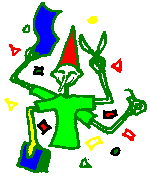21 lettere dell'alfabeto italiano
Click on each picture to listen to the sound of the letter and the word starting with that letter.
The Italian alphabet has 21 letters.
A, E, I, O, U are called "vowels". The others are called "consonants".











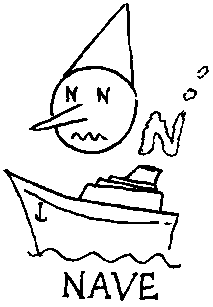
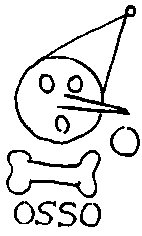

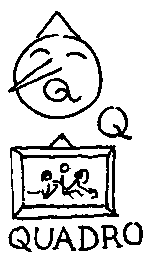
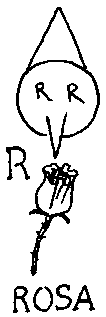


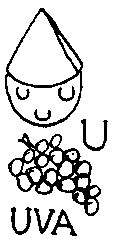
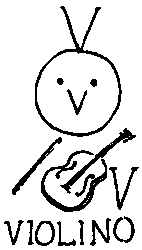

Esercizio 1
| Clicca su "registratore" per registrare la tua voce mentre pronunci le lettere dell'alfabeto italiano qui sopra. | Click on "registratore" to record your voice while you pronounce the letters of the Italian alphabet above. |
Ascolta la tua registrazione: 1. C'è una differenza di pronuncia fra l'audio di CyberItalian e la tua voce registrata? 2. Puoi rendere la tua pronuncia simile a quella di CyberItalian? |
Listen to your recording: 1. Is there a difference in pronunciation between the CyberItalian audio and your recorded voice? 2. Can you make your pronunciation similar to CyberItalian's? |
Lettere addizionali nell'alfabeto italiano
Click on each picture.
These are additional letters in the Italian alphabet (rarely used in Italian):

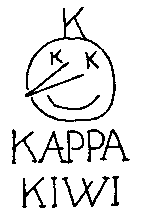
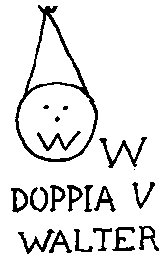


Esercizio 2
| Clicca su "registratore" per registrare la tua voce mentre pronunci le lettere straniere dell'alfabeto italiano qui sopra. | Click on "registratore" to record your voice while you pronounce the foreign letters of the Italian alphabet above. |
Ascolta la tua registrazione: 1. C'è una differenza di pronuncia fra l'audio di CyberItalian e la tua voce registrata? 2. Puoi rendere la tua pronuncia simile a quella di CyberItalian? |
Listen to your recording: 1. Is there a difference in pronunciation between the CyberItalian audio and your recorded voice? 2. Can you make your pronunciation similar to CyberItalian's? |
Click on each picture.
These are consonants combined with a vowel or with another consonant. They have a special sound:
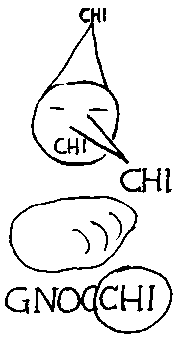
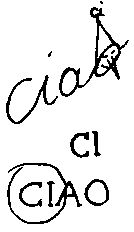
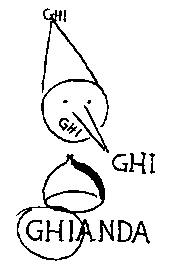
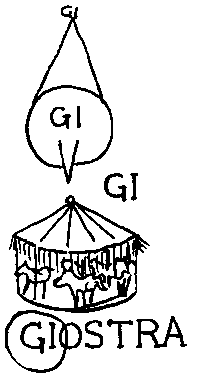
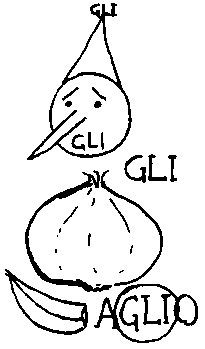
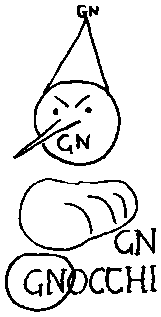
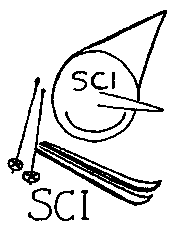
Esercizio 3
| Clicca su "registratore" per registrare la tua voce mentre pronunci i suoni speciali delle parole italiane qui sopra. | Click on "registratore" to record your voice while you pronounce the special sounds of the Italian words above. |
Ascolta la tua registrazione: 1. C'è una differenza di pronuncia fra l'audio di CyberItalian e la tua voce registrata? 2. Puoi rendere la tua pronuncia simile a quella di CyberItalian? |
Listen to your recording: 1. Is there a difference in pronunciation between the CyberItalian audio and your recorded voice? 2. Can you make your pronunciation similar to CyberItalian's? |
Use the Audio Control buttons to Play/Pause/Stop the sound and to adjust the Volume. If you do not see an Audio Control Box close to the Pinocchio icon please check the technical requirements or click on the Pinocchio icon.
Italian words end with a vowel (except words of foreign origin - e.g. sport, film, yogurt...):
- armadio (wardrobe, closet)
- lampada (lamp)
The vowels and the diphtongs (combination of vowels) are clearly articulated:
- noioso, noiosa (boring)
- piede (foot)
Most Italian words have the stress on the next-to-last syllable:
- burattino (puppet)
- lavorare (to work)
However, there are many exceptions to this rule and, since the stress is not indicated by a written accent, the only way to learn the correct pronunciation is by listening, memorizing and practicing:
- leggere (to read)
- frigorifero (refridgerator)
Some words have the stress on the final vowel; they require a written accent:
- caffè (coffee)
- attività (activity)
In a sentence, the stress usually falls on the last word, and the pitch of the voice drops at the end of the sentence:
- Pinocchio è italiano. (Pinocchio is Italian.)
A question is expressed with a rising intonation:
- Pinocchio è italiano? (Is Pinocchio Italian?)
Esercizio 4
| Clicca su "registratore" per registrare la tua voce mentre pronunci le parole e le frasi italiane qui sopra. | Click on "registratore" to record your voice while you pronounce the Italian words and phrases above. |
Ascolta la tua registrazione: 1. C'è una differenza di pronuncia fra l'audio di CyberItalian e la tua voce registrata? 2. Puoi rendere la tua pronuncia simile a quella di CyberItalian? |
Listen to your recording: 1. Is there a difference in pronunciation between the CyberItalian audio and your recorded voice? 2. Can you make your pronunciation similar to CyberItalian's? |
Double consonants must be pronounced. When you pronounce a double consonant, just extend the sound while holding the breath for a moment:
- ballare (to dance)
- ginnastica (gymnastics)
Double consonants are very important because they differentiate words. E.g. "rosa" (pink) "rossa" (red).
Certain words have a double consonant only for the "sake of the music" (you know Italian language is very musical). This happens usually when:
- two words combine (e.g. chi + sa = chissà). Some of these words are: sebbene, fabbisogno, seppure, dammi, fammi, dimmi...
- words start with "sopra, contro": soprattutto, sopralluogo, soprannome, sopravvivere, contraddire...
- words start with the prepositions "a, da, fra, su": allo, addosso, davvero, dapprima, frattanto...
- words start with the conjunctions "e, o, né": eppure, oppure, nemmeno, neppure...
- ...
Words that do NOT require a double consonant are:
- ending with "zione" (azione, meditazione, lezione...)
- starting with "intra" (intravedere, intramuscolo...)
Of course, we always have exceptions. If you are not sure if an Italian word has a double consonant, check the dictionary and use our pronunciation guide.
Esercizio 5
| Clicca su "registratore" per registrare la tua voce mentre pronunci le parole con la doppia consonante, "ballare" e "ginnastica", qui sopra. | Click on "registratore" to record your voice while you pronounce the double consonant words, "ballare" and "ginnastica," above. |
Ascolta la tua registrazione: 1. C'è una differenza di pronuncia fra l'audio di CyberItalian e la tua voce registrata? 2. Puoi rendere la tua pronuncia simile a quella di CyberItalian? |
Listen to your recording: 1. Is there a difference in pronunciation between the CyberItalian audio and your recorded voice? 2. Can you make your pronunciation similar to CyberItalian's? |
TESTIMONIAL (more...):








